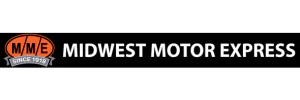Midwest Motor Express Tracking

Enter your Tracking Number and click the button
Track your packages with only one click. To trace your package, enter its Midwest Motor Express Tracking number.
Contact Information
| Phone Number | (701) 223-1880 |
| Email Address | [email protected] |
| Company Location | Midwest Motor Express 5015 East Main Avenue Bismarck, ND 58501 |
| Main Link | https://www.mmeinc.com/ |
| Track Article | Converge ICT Application Tracking |
Midwest Motor Express Service
Users access shipment statuses through centralized dashboards linked to multiple transportation providers. Their tools analyze delivery patterns, reduce transit variability, and support regional distribution planning. Automated data extraction enables reporting across key performance indicators with minimal manual input. Visibility functions interpret real-time carrier data without controlling freight movement directly. They reduce environmental impact through routing optimizations and vehicle usage analytics.
System features support emissions tracking aligned with regulatory frameworks and sustainability programs. Through coordinated software design, users configure shipment alerts, document management, and billing reconciliation. Integration options allow clients to align transport flows across domestic and cross-border operations. Multi-node data collection reflects activity from fleets in the Upper Midwest, Pacific Northwest, and affiliate networks globally.
They apply structured APIs to connect external logistics platforms and monitor delivery lifecycles. Carbon reduction metrics contribute to compliance with voluntary freight sustainability initiatives. Their platform consolidates third-party logistics activity without handling shipments. Historical insights support supply chain decisions, from load optimization to network performance evaluation.
Their coverage extends through regional providers while maintaining a neutral data facilitation role. Users gain clarity across freight movements, carrier statuses, and modal shifts. Service configurations reflect regulatory adaptation across regions like Canada, Mexico, and global corridors. By refining operational datasets, they help businesses evaluate service efficiency and shipment density. Their applications enable scalable usage without dependency on singular transport partners. Filtered logistics data improves forecasting, exception handling, and delivery timing adjustments. Users implement logistics strategies more precisely through mapped performance feedback.